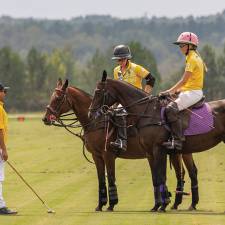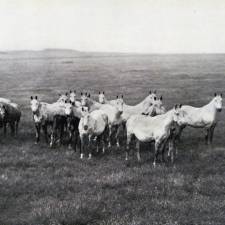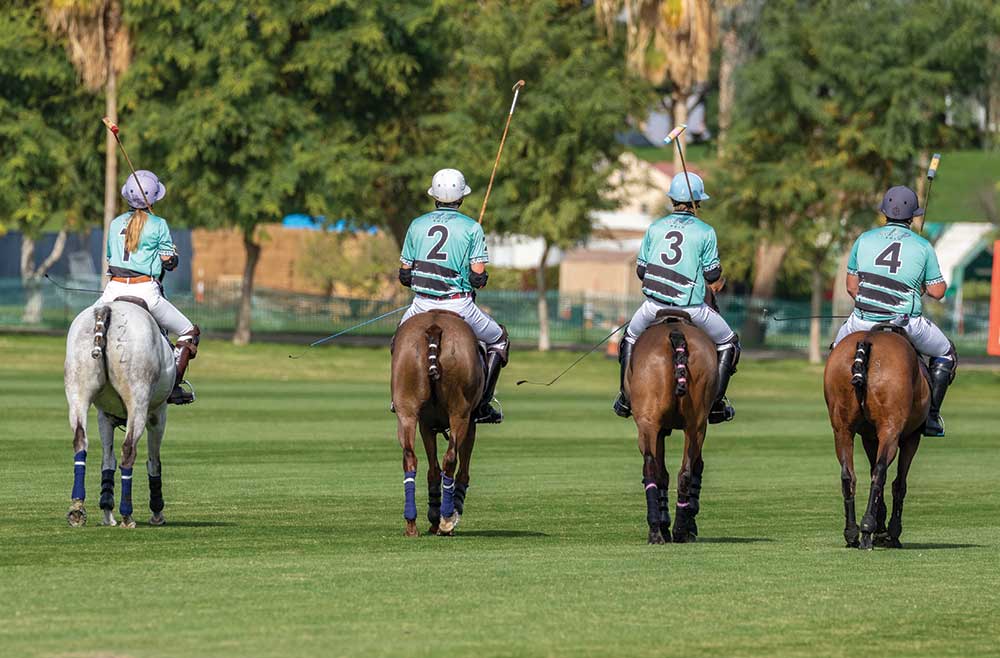
Sports psychology helps athletes of all ages, abilities
The recent Olympic Games in Paris, France, put mental health struggles, particularly among athletes, back in the spotlight. From Simone Biles, the most decorated gymnast, to Noah Lyles, dubbed the world’s fastest man, numerous Olympic athletes have shared their struggles with mental health over the years.
These types of struggles aren’t limited to Olympic athletes or even professional athletes. Amateur athletes also struggle with things like the effects of aging on their bodies; prolonged recovery after injury; handicaps dropping or not rising fast enough; slumps; and more.
Bill Cole, MS, MA, is founder and president of the International Mental Game Coaching Association and works as a performance psychology consultant. He has consulted with athletes, parents and coaches from all around the world on a wide variety of issues in sports psychology. He has been a mental game coach on 25 U.S. world, Olympic and national teams, and has worked with athletes or coaches in just about every sport imaginable, including polo. He has also certified a few polo players who wanted to become mental game coaches through his program.
How does sports psychology help athletes?
There are two big reasons people contact me. No. 1 is transition, and the other is, let’s say, anxiety. So, when people transition up from or into an older age group, a higher level of expertise, a brand new program, a new coach, they go from state to national, national to international, etc. and it brings a lot of uncertainty.
They don’t have their old systems in place and they are not comfortable. There are a lot of unknowns and I help people navigate that.
The other reason is just plain old anxiety or choking. People went into a competition and failed or didn’t do like they expected. They had a lot of fear or doubt and either they thought they needed help or their parents or coach directed them to someone like me.
.Choking and the performance decrement is generally overthinking. Thinking is great, but it has to be in the right place. You have to know when to turn your mind off as well.
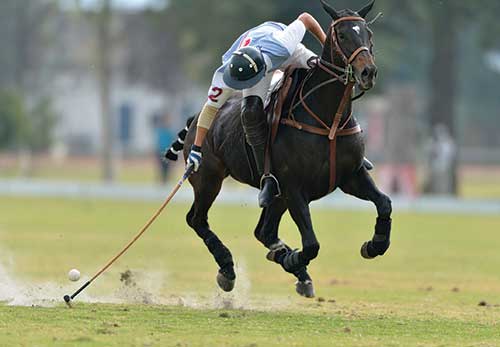
Even the best players make mistakes.
(Photo courtesy of Polo Magazine)
Is sports psychology something that can help any age and ability level?
The youngest person I’ve ever worked with was age 8, and this was a national level chess player, and the oldest person I’ve had was somebody in their 80s. There is really no sweet spot, it can be any age.
The only criteria is the person receiving the coaching has to want the coaching as opposed to being told they need coaching.
Has it become easier for athletes to talk about their struggles and ask for help?
Definitely. There used to be a stigma, but that has largely gone by the wayside. Virtually every single golf pro has a mental coach and every professional baseball team has a resident mental coach on staff.
Basically, every Olympic team has a sports psychologist. It goes on and on where it is so pervasive now that everybody uses a sports psychologist or performance coach if they want to get that special edge.
Is being mentally fit as important as being physically fit?
Yes, and let me define mentally fit for your sport. Do you have all your ducks in a row? Are you addressing all the challenges in the mental arena? If so, you are mentally fit.
I sit on multiple advisory boards, one of which is a high school organization that focuses on mental health for kids doing varsity sports in high school and planning to continue in college.
COVID was a devastating thing, but did the world of sports psychology and society at large a favor by highlighting the problems of mental wellness and mental health. Now, fortunately, very well-known athletes are talking about their mental health and people are paying attention, programs are being put in place and things are getting much better.
To be physically fit you have to work out on a regular basis. Is it the same for mental fitness?
Yes, in essence. I am not saying coaches should devote equal amounts of time to mental and physical training, but install a mental training program in their existing program that doesn’t take extra time. In other words, instead of an hour lecture at the end of every day after practice, I help them learn different mental strategies and tools that coaches can infuse in the practices moment to moment. Then, they are doing mental training as part of the fabric of the practices every day.
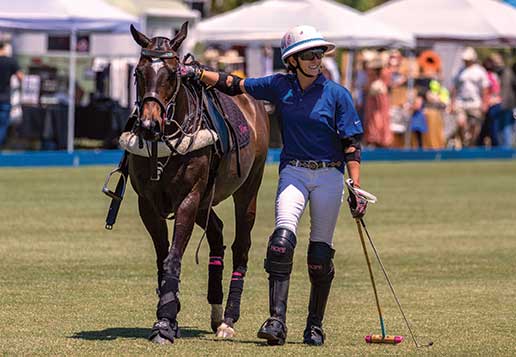
(photo courtesy of Polo Magazine)
Are their certain personalities, such as perfectionists, that require mental training more than others?
Every high-level athlete I’ve ever worked with--Olympic and professional--they tend to be very intense and they tend to be perfectionistic. But, the ones that succeed, and particularly those that succeed regularly, are able to overcome their tendency to be a perfectionist. Instead, they convert the perfectionism into a desire for excellence because perfectionism is a killer of performance. Perfectionists are so focused on avoiding mistakes and saving face that it causes a choke. You have to be OK with making a certain number of mistakes and certain types of mistakes and let those go rapidly so they don’t decompensate when they compete.
They have done surveys in terms of personality types. There are two broad categories: extroverts and introverts, who account for 20-40% of the populace.
Introverts are more prone to choking. Why? Because introverts like to live in their head. They are thinkers and analysts who like to break things down and understand everything. There is a quote I use all the time: thinking is wonderful, but a strength taken to an extreme turns into a weakness. That is what happens when you overthink at the drop of a hat.
Extroverts have their difficulties as well. Maybe they tend to gloss things over, be overconfident or maybe not think enough. Everybody is different so a custom approach is one you ultimately have to use.
Did the polo players you’ve worked with have similar struggles?
Two things stood out when I worked with polo players, although this is happening in every sport: one is dealing with big egos and the other is team communication, and they are kind of linked together.
If you have a real star on the team and they are not careful, they have a hard time respecting the other players. The other players sense that and it affects team communication.
Even with coaches, there is a communication issue. The star player may feel they can do no wrong, or they can make a mistake here or there, but no one has the right to criticize them.
How can a player keep a positive attitude when there are so many things that can go wrong?
Dedication and commitment are the glue that helps players keep it together when they make mistakes, have setbacks or adversity, criticism, losses or disappointments.
I collect quotes on a lot of different things and one category is famous athletes who talk about their love of the sport. They might say, even though I am an Olympian, one thing that really keeps me going is its in my DNA and I don’t have to force it, but I love my sport.
There is an expression I use, that the worst day on the polo field is far better than the best day in the office. So, learn to love and appreciate your sport. If it really gets you down, love it even more and figure those things out because the love is what keeps you going.
In baseball, the batting average for hall of famers is 300. The highest average is 375 and the lowest is 250. If you are batting 300 at any level, you are pretty much hall of fame material. That means for every 10 times at bat, you will fail seven times. You think you ought to be batting 800, but no one in history has ever batted 500.
It is the same concept for polo. You are never going to succeed 100 percent of the time. If you make attempts and make errors, welcome to the club. You are not the only one who is making mistakes.
As players get older, it can be frustrating when they can’t do the things as well as they once did.
How can they stay positive?
The older you get, hopefully the more gratitude you have that you are able to keep playing your sport. When you are younger, you sometimes take it for granted. When you get older, take it one day at a time, some days one hour at a time. Gratitude is a wonderful elixir, which is the opposite of whining or complaining.
As an exercise, answer four questions in your journal every day: What did you learn? What got better? What was fun? What were you grateful for? They are all positive in nature and can change anybody’s negative attitude to positive in under 30 days. It changes your point of view and once you decide to answer those questions, you will be looking for answers during the day and that changes your mindset.
What can someone do during a competition to refocus if things are not going their way?
There are control factors and I use three buckets of control. The first bucket is things totally out of your control, the second bucket is things that are totally in your control and the third is a hybrid of partial control. Make the list for each bucket.
Another important tool is a refocusing or reset tool. Sit quietly for 10 seconds and simply listen to your breath. Your breath reorients you to the present because the sound and feel of the breath is in the present. If you breathe for longer than 10 seconds, even better since it is going to relax you.
I might also ask, what time zone do you play good polo in, past, present or future? The answer is the present so reorient yourself to the present with your breath.
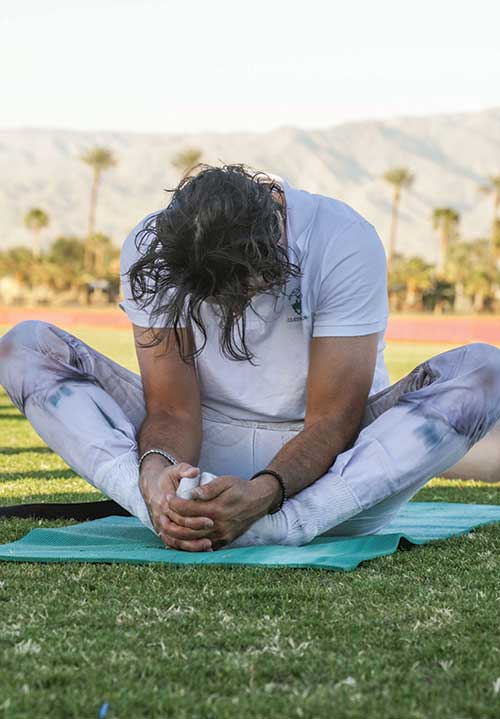
(photo courtesy of Polo Magazine)
Are there other exercises you can do off the field to complement mental coaching?
Very much so. People will do yoga and other relaxation exercises, like Bensons or progressive [muscle relaxation] that work nicely. There are also a number of phone apps, like Calm, that actively engage you with guided visualization or guided meditation.
As I said before, you don’t need to set aside time everyday to do mental training. I give you tools, techniques and strategies to infuse into your practice every single day.
In general, how long do you work with someone for mental coaching?
I have some people that come for a quick fix of a couple of months and that is it, and some are with me over six months or a year. I also have some people who come for a boot camp, for example. The longest I’ve had a client is every other week for eight years.
Do you generally work with people one-on-one or in a group setting?
COVID changed everything. Now I strictly work on Zoom and Facetime. Sometimes it is a small group, but the kind of work I do is much more powerful when its one-on-one because it is highly customized and I can go a lot deeper.
What is the process for hiring a performance psychology consultant, like you?
Basically, I’ve got a no-cost 65-item assessment on my website that pinpoints their strengths and weaknesses in the mental arena and rapidly gives us an agenda for coaching. The potential client fills it out and they get a copy and I get a copy. I then send information about the program.
For more information go to mentalgamecoaching.com.
This article is reprinted with permission from Polo Magazine ©.
You can find more interesting articles in our section on Health & Education and Riding Disciplines.








